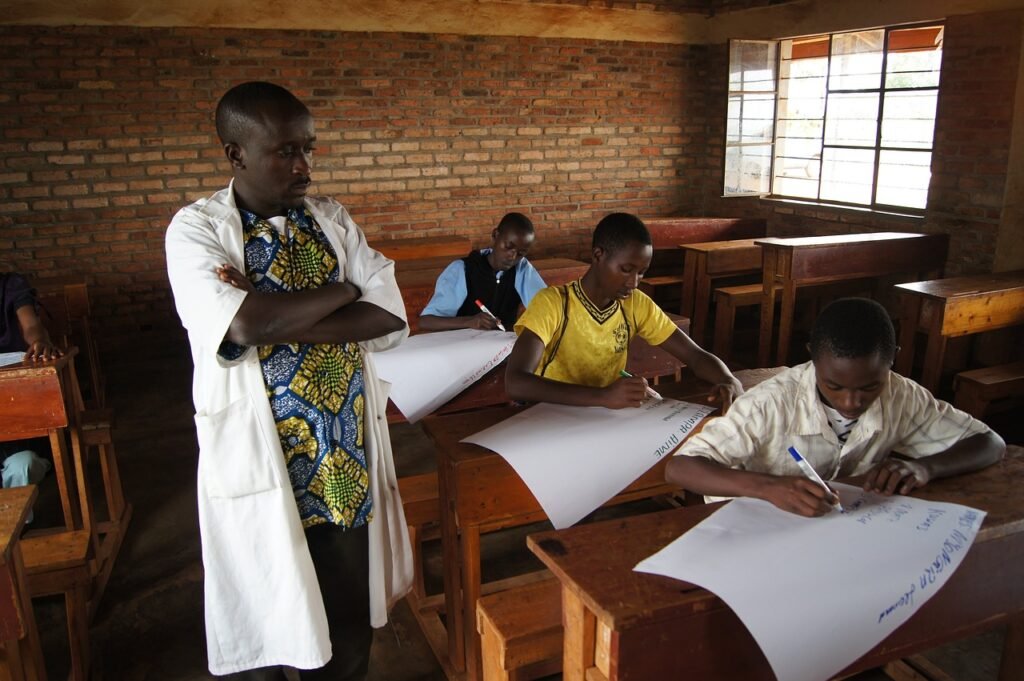Verbs in English
make
make / made / made / making
The verb “make” is an important verb to know how to use when creating or producing something. Watch this video, then take a look at the examples below.
You can use this verb for many different reasons. It’s a transitive verb, so be sure to use an object with “make”: I make _____.
subject + make + money
Money:
- He makes a lot of money at his job.
- How much money do you make?
- People who work in information technology can easily make over 100K per year at their jobs. (K = $1000)
- That restaurant does not make very much money.
- It’s hard to make money in the restaurant business.
- Some people try to make money by becoming social media celebrities.
- That’s a hard way to make a buck.

You make money when you work.
subject + make + food
Food:
- What did you make for dinner?
- Do you like making dinner? (This sentence use “make” as a gerund.)
- I make coffee every morning.
- I use a coffee maker to make coffee. (The word “maker” is a noun.)
- The restaurant down the street makes great pizza.
- Elizabeth knows how to make Peruvian food. She’s from Peru.
- Juan enjoys making Chinese food.

You can make a great pizza with just pizza dough, mozzarella cheese, tomato sauce, and basil.
subject + make + creation
Creation:
- What are they making?
- They’re making an art project for school.
- It’s fun to make music.
- People who know how to make furniture by hand can sell their work for a lot of money.
- The restaurant down the street make great pizza.
- The people who made the monastery were talented architects in their day. (make = build)
- How long did it take to make?

This is a monastery. It took a very long time to make.
causative verb
Use “make” as a causative verb:
- That makes me laugh.
- Jennifer’s boss often makes her stay late at work.
- A police officer made the man pull over for speeding.
- Why is the school making us do this?
- Teachers make their students do work in school.
- Schools make students take tests.
- Sometimes chocolate makes my stomach upset.

This teacher is making his students do a lot of work.
The Verb “Make”
Directions: Use the verb “make” in the following sentences and questions. Pay attention to helping verbs and the various forms that this verb takes.
1. She _ _ _ _ _ _ _ _ _ _ _ _ _ a delicious cake from scratch. (past tense)
2. They _ _ _ _ _ _ _ _ _ _ _ _ _ a nice couple. (present tense)
3. _ _ _ _ _ _ I _ _ _ _ _ _ _ _ a reservation for two? (use the modal verb “can”)
4. He _ _ _ _ _ _ _ _ _ _ _ _ _ more time for his family. (“have to” – present tense)
5. The tailor _ _ _ _ _ _ _ _ _ _ _ _ _ a custom-tailored suit for the client. (future tense)
6. I want _ _ _ _ _ _ _ _ _ _ _ _ _ a difference in the world through my work. (infinitive)
7. He _ _ _ _ _ _ _ _ _ _ _ _ _ a decision. (use “could” – negative)
8._ _ _ _ _ _ _ _ _ _ _ _ _ plans for this weekend. (Use “let’s”)
9. The chef _ _ _ _ _ _ _ _ _ _ _ _ _ a special dish for the celebration. (present perfect)
10. She _ _ _ _ _ _ _ _ _ _ _ _ _ it on time. (use “be going to – negative)
11. The students need _ _ _ _ _ _ _ _ _ _ _ _ corrections to their paragraphs. (infinitive)
12. The company _ _ _ _ _ _ _ _ _ _ _ _ _ an impact on the environment. (present continuous)
13. _ _ _ _ _ _ _ _ _ _ an effort to reduce your carbon footprint isn’t that hard. (gerund)
14. The mechanic _ _ _ _ _ _ _ _ _ _ _ _ _ the repairs to the car. (past tense – negative)
15. John _ _ _ _ _ _ _ _ _ _ _ _ _ a lot of money last year. (past tense)
16. The teacher _ _ _ _ _ _ _ _ _ _ _ _ _ an announcement during the class. (future tense)
17. Sophia _ _ _ _ _ _ _ _ _ _ _ _ _ her kids wake up early every morning. (present tense)
18. Tanya is upset because she _ _ _ _ _ _ _ _ _ _ _ _ _ the team. (past tense – negative)
19. They are trying _ _ _ _ _ _ _ _ _ _ _ _ _ a deal. (infinitive)
20. She _ _ _ _ _ _ _ _ _ _ _ _ _ a quilt without yarn. (use “can” – negative)
